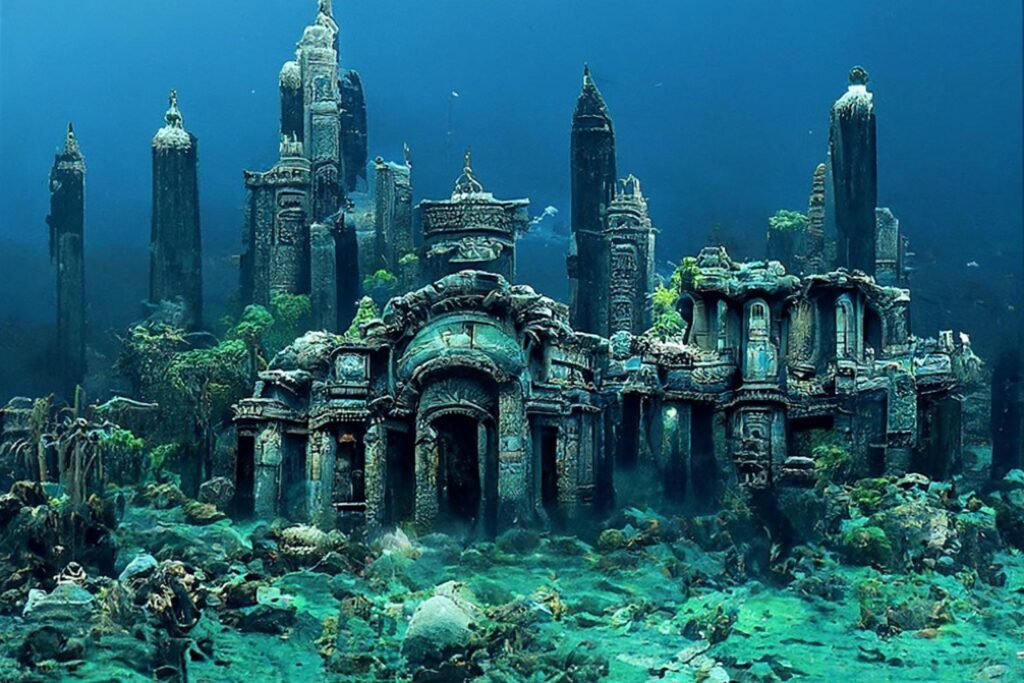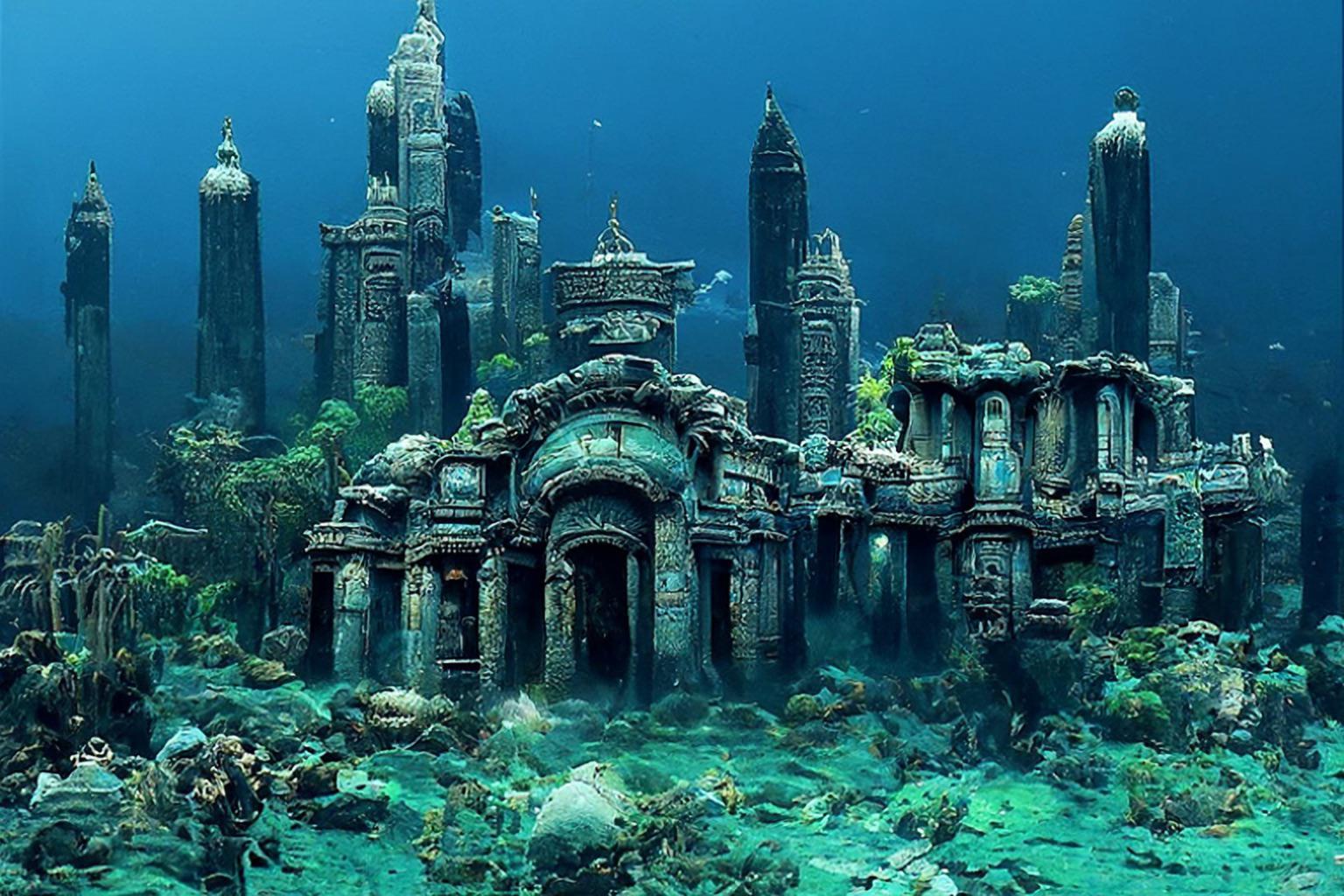
Atlantis: Unraveling the Mysteries of the Lost City
The legend of Atlantis, a powerful and advanced island nation swallowed by the sea, has captivated imaginations for millennia. Mentioned by Plato in his dialogues Timaeus and Critias around 360 BC, Atlantis has become synonymous with utopian ideals, advanced technology, and the perils of hubris. But was Atlantis a real place, or merely a philosophical allegory designed to illustrate Plato’s political theories? The debate continues, fueling countless expeditions, books, and theories about the location and fate of this enigmatic civilization. This article delves into the history of the Atlantis myth, examines the evidence (and lack thereof) supporting its existence, and explores why the story of Atlantis remains so compelling even today.
The Origins of the Atlantis Myth
Plato’s account of Atlantis provides the foundation for all subsequent interpretations. According to Plato, Atlantis was located “beyond the Pillars of Hercules” (now the Strait of Gibraltar) and was a naval power that conquered much of Western Europe and North Africa. The Atlanteans were descendants of Poseidon, the god of the sea, and initially governed by wise and virtuous kings. However, as generations passed, they became corrupted by greed and power, leading to their downfall.
Plato wrote that Atlantis attempted to conquer Athens but was defeated, and subsequently, the island was destroyed by earthquakes and floods and sank into the ocean “in a single day and night of misfortune.” It is important to note that Plato presented the story of Atlantis as historical fact, derived from accounts passed down through generations.
The Search for Atlantis: Theories and Expeditions
Despite the lack of concrete evidence, the search for Atlantis has spanned centuries. Numerous theories have emerged, placing the lost city in various locations around the globe. Some of the most popular theories include:
- The Mediterranean Theory: This theory suggests that Atlantis was located in the Mediterranean Sea, possibly near Santorini (Thera) in Greece. The volcanic eruption of Thera around 1600 BC, which devastated the Minoan civilization, is often cited as a potential inspiration for Plato’s account.
- The Atlantic Ocean Theory: Adherents to this theory believe that Atlantis was a large island or continent located in the Atlantic Ocean, as described by Plato. Some proponents point to geological features like the Mid-Atlantic Ridge as potential remnants of the lost civilization.
- The Antarctica Theory: This controversial theory proposes that Atlantis was located in Antarctica, which was once a temperate region before shifting to its current polar location. This theory often relies on speculative interpretations of ancient maps and geological anomalies.
- The Bimini Road Theory: This theory suggests that the Bimini Road, an underwater rock formation near Bimini Island in the Bahamas, could be a remnant of Atlantis. However, geologists have determined that the Bimini Road is a natural formation.
Numerous expeditions have been launched to find Atlantis, employing various technologies and methodologies. These expeditions have often yielded interesting findings, but none have provided conclusive proof of the existence of Atlantis. [See also: Ancient Underwater Cities]
Evidence and Counterarguments
The evidence for the existence of Atlantis is largely circumstantial and based on interpretations of archaeological findings, geological anomalies, and ancient texts. Some common arguments used to support the Atlantis theory include:
- Similarities between Ancient Cultures: Proponents of Atlantis often point to similarities between ancient cultures, such as the Egyptians, Mayans, and Minoans, as evidence of a shared origin, possibly Atlantis. However, these similarities can also be explained by cultural diffusion and independent invention.
- Out-of-Place Artifacts: The discovery of artifacts that seem to predate their supposed origin or exhibit advanced technology is sometimes cited as evidence of Atlantis. However, these artifacts are often subject to misinterpretation or have alternative explanations.
- Ancient Maps: Some ancient maps, such as the Piri Reis map, are interpreted as depicting landmasses that do not exist today, leading to speculation that they represent remnants of Atlantis. However, the accuracy and interpretation of these maps are debated among historians and cartographers.
Despite these arguments, the vast majority of historians, archaeologists, and scientists remain skeptical of the existence of Atlantis. They argue that Plato’s account is likely a philosophical allegory and that the lack of concrete evidence after centuries of searching suggests that Atlantis never existed. The burden of proof lies with those who claim Atlantis was real, and so far, that burden has not been met.
The Enduring Appeal of the Atlantis Myth
Regardless of its historical accuracy, the story of Atlantis continues to resonate with people around the world. Its enduring appeal can be attributed to several factors:
- The Allure of a Lost Golden Age: Atlantis represents a utopian ideal, a society with advanced technology, wise rulers, and a harmonious way of life. The idea of a lost golden age appeals to our longing for a better past and a brighter future.
- The Mystery of the Unknown: The disappearance of Atlantis into the sea creates a sense of mystery and intrigue. The unknown depths of the ocean hold a powerful fascination, and the possibility of discovering a lost civilization adds to the allure.
- A Cautionary Tale: The story of Atlantis serves as a cautionary tale about the dangers of hubris and the consequences of unchecked power. It reminds us that even the most advanced civilizations can fall if they lose their moral compass.
- The Power of Imagination: The story of Atlantis provides a fertile ground for imagination and creativity. It has inspired countless works of fiction, art, and music, allowing people to explore the possibilities of human potential and the mysteries of the universe. [See also: Lost Civilizations and Their Mysteries]
Atlantis in Popular Culture
The legend of Atlantis has permeated popular culture, appearing in numerous books, films, television shows, and video games. Some notable examples include:
- Jules Verne’s “Twenty Thousand Leagues Under the Sea”: Captain Nemo’s submarine, the Nautilus, visits the ruins of Atlantis in this classic science fiction novel.
- Marvel Comics’ Namor the Sub-Mariner: Namor is the ruler of Atlantis, a hidden underwater kingdom.
- Disney’s “Atlantis: The Lost Empire”: This animated film tells the story of a young adventurer who discovers the lost city of Atlantis.
- The Stargate Franchise: Atlantis is a major setting in the Stargate universe, serving as the base of operations for the Atlantis Expedition.
These examples demonstrate the enduring influence of the Atlantis myth on our collective imagination.
Conclusion: The Enduring Mystery of Atlantis
Whether Atlantis was a real place or a philosophical allegory, its story continues to inspire and intrigue us. The legend of Atlantis serves as a reminder of the power of human imagination, the allure of the unknown, and the importance of learning from the past. While the search for physical evidence of Atlantis may continue, its true legacy lies in its enduring presence in our culture and its ability to spark our curiosity about the mysteries of the world. The tale of Atlantis, regardless of its veracity, underscores our fascination with lost civilizations and the enduring human quest for understanding our history and potential futures. Perhaps the greatest treasure of Atlantis is not gold or technology, but the lessons it teaches us about ourselves. The mystery of Atlantis persists, a testament to the power of stories and the enduring human quest for knowledge.

